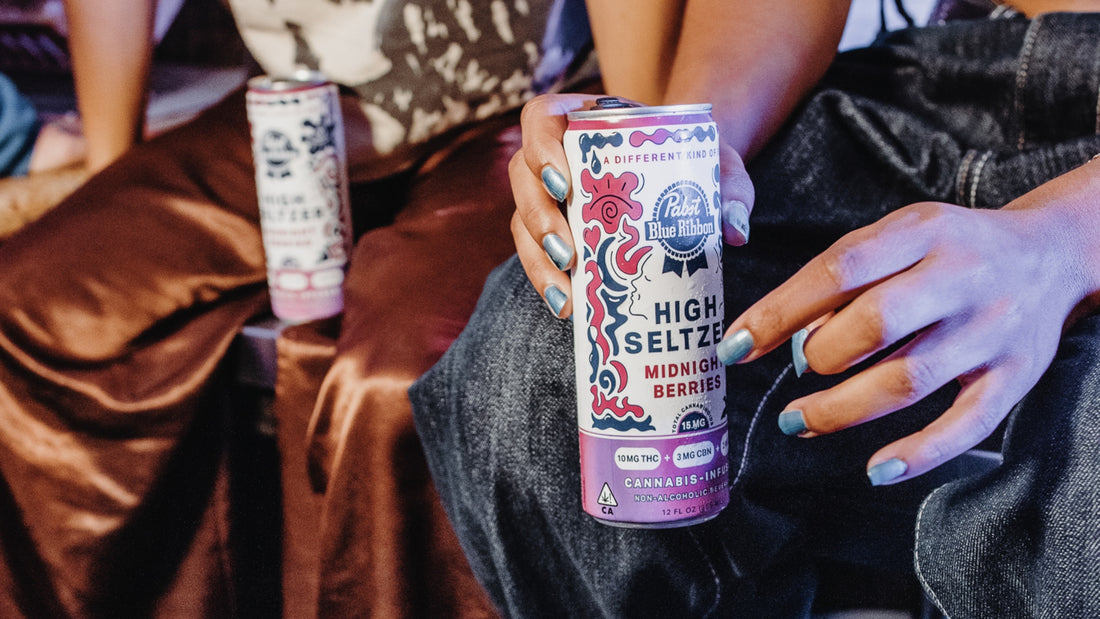
CBN Guide for Sleep
Share
Cannabinoids are active compounds that provide medicinal, recreational, and therapeutic benefits to cannabis. They work with terpenes to make us feel happy, relaxed, mellow, sleepy, and a myriad of other physiological and mental effects. If you feel like there’s a new cannabinoid popping up in the headlines every day, you’re not alone. Research is growing rapidly and the hemp and marijuana industries are taking advantage of the science—in a good way.
Now, we can shop for cannabis products tailored to the effects we desire and find formats like vape pens, edibles, or cannabis drinks to meet our needs. One of the biggest reasons people are trying out new cannabis products is to promote deeper sleep. So many people struggle to fall asleep and stay asleep, but cannabis has a remedy for that. That cannabinoid is called CBN, and CBN for sleep is gaining traction. Here’s what you need to know about this dreamy cannabinoid.
What Is CBN?
Cannabinol (CBN) was first discovered in 1896 as the first cannabinoid isolated in a laboratory setting. Researchers originally believed that CBN was the primary compound that produces the “high” we associate with weed. However, scientists soon identified that CBN is produced by environmental factors and not its actual genetic properties.
CBN is a mildly psychoactive cannabinoid made from tetrahydrocannabinolic acid (THCA). THCA is the precursor to THC, and CBN is produced when THCA is exposed to air, heat, and light. This process of oxidation is actually the degradation of THC into CBN. So, all of that old weed you have sitting around in your cupboard has likely gained significant CBN value over time.
The more the THC oxidizes, the stronger the CBN becomes. Roughly 10-20% of THC converts to CBN, meaning that CBN is always found in lower quantities and is categorized as a minor cannabinoid. CBN flower is harder to come by for this reason, but CBN oil is extracted for use in topicals, beverages, vape pens, and edibles.
Despite its close relation to THC, it doesn’t have the same psychotropic properties. Instead, CBN works alongside THC to provide enhanced effects. This is known as the entourage effect, though the term ‘ensemble effect’ is a more accurate definition. It means that the plant’s naturally occurring compounds (all of the cannabinoids and terpenes) work together harmoniously to provide a strain’s unique effects. Essentially, the whole is greater than the sum of its parts.

CBN for Sleep
THC is well known for its sedative effects, but CBN has been dubbed the “sleep cannabinoid”. So, is CBN for sleep its true purpose? Research shows that THC can cause drowsiness, but when there is CBN content present those effects are amplified. So, while many people have made claims that CBN on its own is what causes its sleep-promoting qualities, it’s actually the combination of CBN and THC.
For anyone suffering from sleep issues, combining THC and CBN might be the magic bullet to falling asleep faster and, more importantly, staying asleep. It’s often the tossing and turning that causes loss of sleep or poorer quality of rest overall. Cannabis is one of the best natural remedies for tackling insomnia and improving sleep quality.
Finding your ideal dose might take a little practice. Because everyone’s endocannabinoid system (ECS) operates differently, there is no one tried and true dosage that will provide everyone the same results. Start with 2-5mg CBN alongside 5-10mg THC and monitor the effects. Take it about an hour before bedtime and if you do not get enough sleep or good enough sleep, increase your dose the following evening.
Other Benefits of CBN
CBN is a team player across the board. Just like it works with THC to promote better quality sleep, it also pairs well with cannabidiol (CBD). Yet, instead of sending you off to dreamland, CBN and CBD fight inflammation and relieve pain. It is also known to have neuroprotective properties, increase appetite, and provide relief from pain and discomfort related to fibromyalgia and temporomandibular disorders.
Potential Side Effects
Research is still fairly limited in regards to CBN, so we have to identify side effects specifically related to it. However, it’s safe to assume that overconsuming CBN may result in some of the same side effects we associate with other cannabinoids. This includes drowsiness, dizziness, nausea, or vomiting. Know that all cannabinoids are relatively safe in moderate doses, and the best thing you can do to avoid any uncomfortable side effects is to start small and increase your dosage gradually.

CBD vs. CBN
CBD and CBN are naturally occurring compounds found in both hemp and marijuana. They are non-intoxicating and typically used medicinally and therapeutically because they don’t quite offer the “high” you get from THC. That is unless you combine them with THC for an all-around whole-body effect.
They each work with THC a little differently as well. For example, CBD is known to reduce the psychoactive effects of THC, acting as an emergency ripcord to help bring you down in case you get too high. CBN on the other hand ramps up the effects of THC, acting as an antagonist to the psychoactive effects. It also increases the sedative properties, allowing for a full-body melt that is excellent for sleep.
Is CBN Legal?
Cannabinoid legality always depends on the source of origin, but because CBN forms from degraded THC, this one is trickier to define. If any cannabinoid is hemp-derived, it is protected under the Farm Bill that legalized the production and sale of industrial hemp. The catch is that the final product must contain less than 0.3% THC.
If the cannabinoid is derived from marijuana, then it is subject to state laws where weed is legal. It can be bought and sold through licensed dispensaries and distribution channels only. Since hemp contains such small amounts of THC, most CBN comes from THC-rich marijuana, meaning you’ll likely find the best quality CBN in dispensaries or through their distribution partners.

Key Takeaways on CBN for Sleep
CBN is formed when THC degrades as it is exposed to light, air, and heat. While THC has sedative properties on its own, they are amplified when you consume CBN along with it. People report falling asleep faster and staying asleep longer, which leads to feeling much more refreshed in the morning. Although research is ongoing, CBN holds a lot of promise for its many therapeutic benefits.
Try some CBN in our latest High Seltzer: Midnight Berries. We’ve combined 10mg THC with 3mg CBN and 2mg CBD as the perfect way to wind down. Grab a can after dinner, or sip at your next social soiree to relax and find that perfect mellow vibe.
